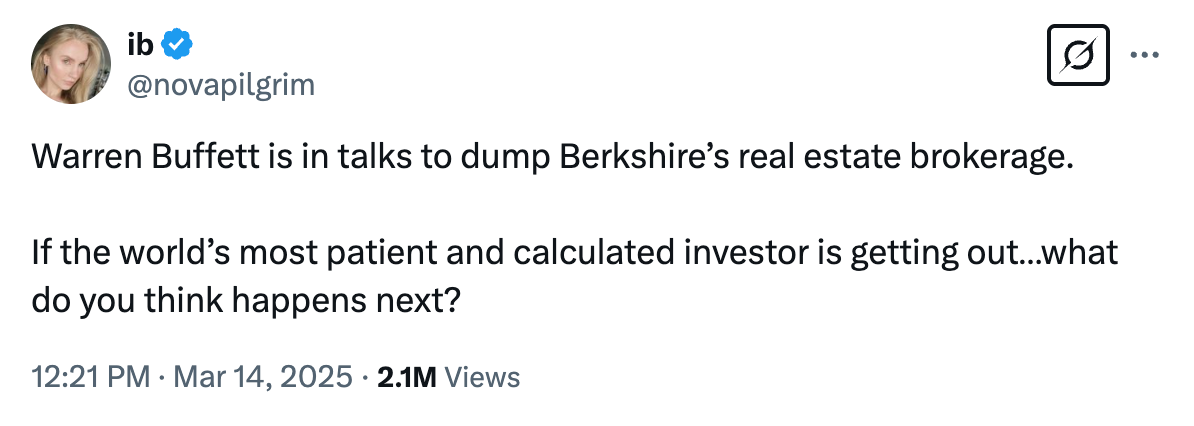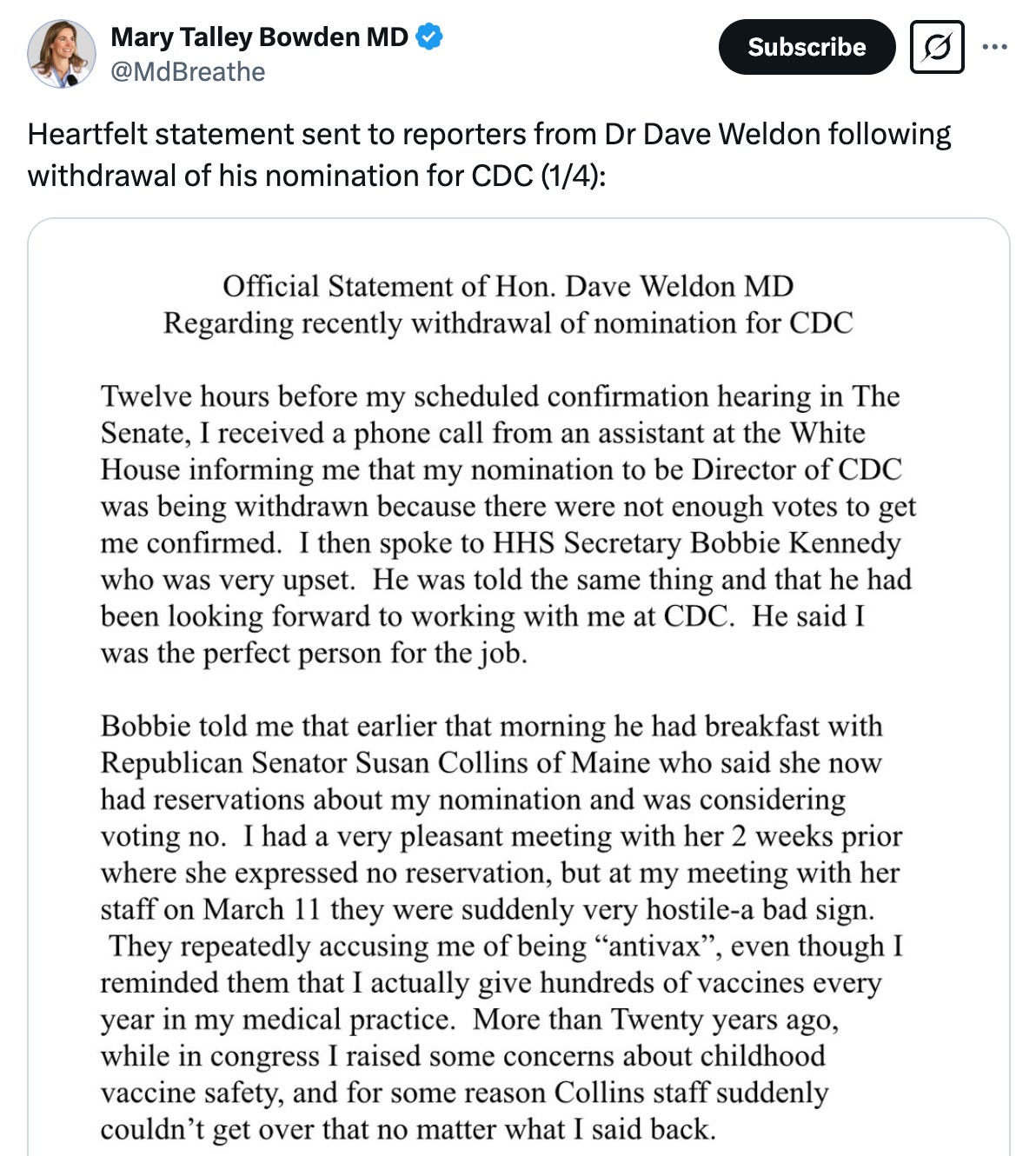What I Read This Week…
Federal agencies begin the deregulation process, Chinese startup Butterfly Effect has 2+ million people on the waitlist for its AI agent, and scientists create an artificial photosynthesis system
Read our Deep Dive: The Media Landscape - Sense-Making 2.0
Caught My Eye…
Federal agencies are starting the deregulation process, following President Trump's executive order "Unleashing Prosperity Through Deregulation," which mandates removing at least ten existing regulations for each new one issued. The FCC released a public notice earlier this week, initiating a process to identify regulations that create "unnecessary burdens" or impede investment and innovation in telecommunications and broadcasting. The FCC, which regulates interstate and international communications by radio, television, wire, satellite, and cable across the U.S., has named this deregulation effort "Re: Delete, Delete, Delete" and is soliciting public input on which rules should be eliminated. Potential targets for removal include media ownership restrictions, regulations governing copper network retirement, broadband deployment requirements, and recently established consumer protection requirements such as mandatory "nutrition labels" for internet service providers. While the administration's initial focus since inauguration had been on reducing government spending, this move signals a parallel push toward comprehensive deregulation across federal agencies.
Manus is a recently launched AI agent by Chinese startup Butterfly Effect that functions as a digital worker capable of executing complex tasks without step-by-step human guidance. What sets this AI agent apart from others? Unlike chatbots that require ongoing interaction, Manus operates autonomously once given a goal and continues working even when users go offline. It employs a multi-agent architecture with specialized sub-agents that coordinate to complete tasks, integrating with 29 tools including web browsers and code terminals. The system provides transparency through its "Manus's computer" interface that shows users exactly what actions it's taking in real time. Since its launch last week, Manus has over 2 million people on its waitlist and partnered with Alibaba's AI team for infrastructure support. Early adopters have used Manus for travel planning, financial analysis, educational content development, insurance comparison, e-commerce data analysis, and building websites from plain English instructions. Despite these capabilities, Manus faces challenges including occasional bugs and crashes, inconsistent output quality across different tasks, and integration difficulties in enterprise environments.
Scientists have developed a novel "artificial photosynthesis" system that uses water and light to create compounds such as antihistamine drugs. How does this system work? Two light-activated catalysts work together like a molecular factory: the first, a silver-enhanced titanium-based material, absorbs light to produce reactive hydroxyl radicals that break carbon-hydrogen bonds in the starting materials, while the second, a metal-modified ceramic material, helps complete the reaction and generates hydrogen. This system transforms simple molecules into more complex ones by adding both carbon and hydroxyl groups in one step, with water serving as the source of oxygen atoms, electrons, and reactive species that drive the reaction. Unlike conventional methods that produce waste byproducts, this reaction produces only hydrogen gas while operating at room temperature. The researchers demonstrated its usefulness by creating terfenadine, an antihistamine drug, and showed the process works with both laboratory light and simulated sunlight. This reaction requires energy input, similar to how plants use sunlight to build sugars, rather than releasing it through combustion. The approach could potentially be applied to making pharmaceutical intermediates, fine chemicals, and other products that currently require multiple chemical steps and hazardous reagents to produce.
Other Reading…
Stranded NASA Astronauts Plan for Return to Earth This Week (WSJ)
Antonio Gracias Joins Elon Musk’s Effort on Social Security (NYTimes)
Unclear Definitions of AI Agents Leading to Customer Frustration (TechCrunch)
Crossing the Uncanny Valley of AI Conversational Voice (Sesame)
CoreWeave Serves as Bellwether for AI in IPO Market (Semafor)
Apple’s Upcoming iPhone ‘Air’ Is a Step Toward a Port-Free Phone (Bloomberg)
Etsy, eBay Plan to Imitate Social Media With Hyper-Personalized Shopping (WSJ)
Netflix, Amazon and Peacock Go Big on Popular YouTubers (WSJ)
On X…








Couple o' Thoughts (I was only expecting to do this to that one article two weeks ago but now my OCD has kicked in, and I feel the need to continue):
* it certainly seems that during the next 5 years, people's mentality will have to change from thinking about how to spend the hours in a day to how to spend the tokens in a day
* Re Friedberg's biggest mistake tweet: This is so on point. When Mitt Romney told the truth that "corporations are people," it was greeted with hostility because the vast majority of Americans have no connection to the private sector. Suppose you could align the incentives of capitalism to societal well-being...call it....wait for it....social capital. In that case, I don't think you'd have so many people arguing against private sector growth. We should caveat this with the concern that S&P500 growth follows a more extreme Pareto distribution, so maybe instead of investing it in the S&P 500, it should be invested in the S&P 100. On a related point, I think there's a general lack of understanding of how society works. Very few people know how government works, and very few know how the private sector works. If people understood them, I think there'd be much more appreciation for both. But this is the nature of the path of least resistance. It's faster & easier to be mad than to understand.
* Re You and Friedberg grinding: This was such a great segment but the caveat is that both of yall had great degrees to back it up. You may have been grinding, but you knew that being the fry cook isn't where your professional career ended. College used to unlock that life, and it just doesn't now. I think an ever-increasing part of America has no backstop, is living paycheck to paycheck, and is grinding hard with no prospect of NOT grinding. Grinding (for the purposes of this argument, grinding is restricted to work you dont want to do) in your 20s is one thing, doing it when youre over 40 is brutal. This isn't to minimize the incredible story you and many other people have, it's to emphasize that there is an ever increasing populace that doesnt see work as a way of leading to a way out.
* Two related points to the above: 1) the problem isn't that the low-skill jobs don't pay enough; it's that more and more older people are working low-skill jobs. The maturation of the industrial age led to the high school degree requirement to afford a good life, just like the tech revolution bumped that to a college degree requirement. The AI revolution will bump this again (although the education path may not be restricted to institutions). 2) I've noticed that my kids turn into demons when they've either had too much sugar, or they're bored. I'm not sure we ever grow out of that. I think a bunch of people in our country are under-educated and feel under-utilized; as a result, they are bored. Unfortunately (or fortunately), even when you're bored, your brain has calories it still tries to burn (i.e., searching for purpose). The burn cycle has made our country more susceptible to social engineering. For both of these points, society has to have a plan.
* Re Buffet dumping real estate: I bought my first place at the worst possible time. I remember thinking the prices made no sense, but people convinced me that real estate only went up. I was a baffoon. My place dropped by something close to 30%, and I could not offload it, so I was just trapped paying way too much for a place that wasn't worth it. I refinanced a few times as rates dropped, but that feeling of being stuck is awful. I was finally able to sell at almost break even 15 years later (2 years ago, so also around what I think will be the peak). Now my family needs a house, and I have aging parents & in-laws moving in to think about, so I need a bigger house. I haven't given in to the folks trying to convince me to do it because I believe a massive asset correction, as you alluded to on the pod, may get these assets to reflect actual value soon. However, given my previous situation, I KNOW that will hurt a LOT of people. Being stuck with the option of taking the massive credit hit and walking away from a house or staying in it for the next 20 years because you can't afford to move somewhere else are brutal options. There's going to be a need for an option for these people,e and there's going to be a need to prioritize people buying a primary house rather than homes as an investment. Maybe there's a creative way to do this without that restriction, but as the supply increases, we want families securing those assets, not companies/investors.
* Re Yamanaka factors/cas12&13/Alphafold/Stem&Muse cells: what happens when we solve biology? Are we shifting from symptoms management to problem solutions? I expect that we'll have an electronic human biology testbed (far more advanced biology-on-a-chip devices) in the next few years, and other countries aren't going to pump the brakes for safety as we do. The US healthcare system wouldn't survive if people went abroad for treatments at a fraction of the cost. The discovery/testing/application cycle is going to go parabolic (I only used that word because you recently did and it makes me feel that using the word, "exponential", feel hyperbolic (curve pun)). I anticipate a steady stream of breakthroughs coming to a point where we have a treatment for every biological problem (including aging) within the next 20-25 years. How does the current healthcare sector adapt to it (don't worry, I'm on it)? Just like the AI competition has gone global, I think healthcare will also.
Why should SPAC scammers NOT be sent to an El Salvador prison?